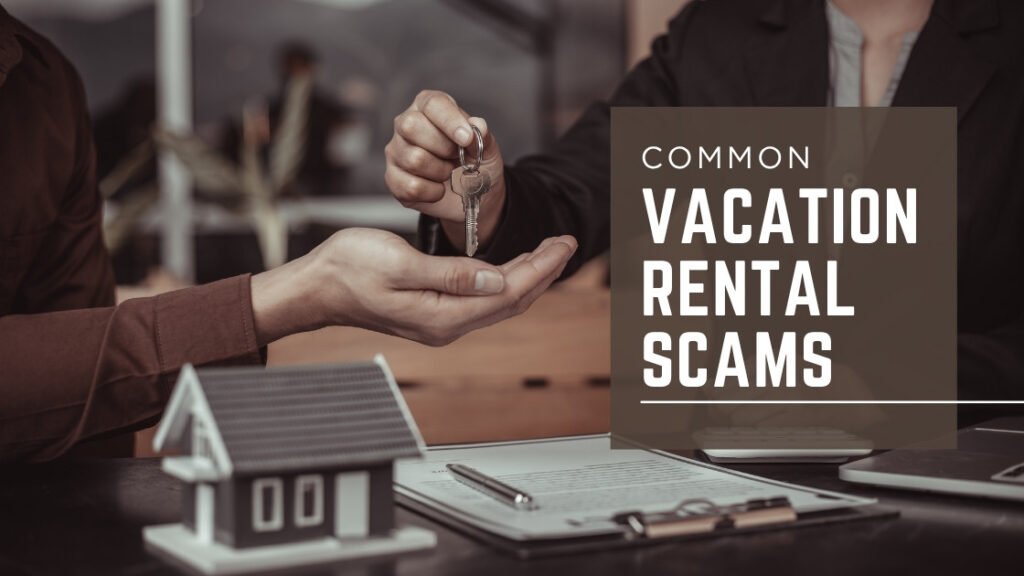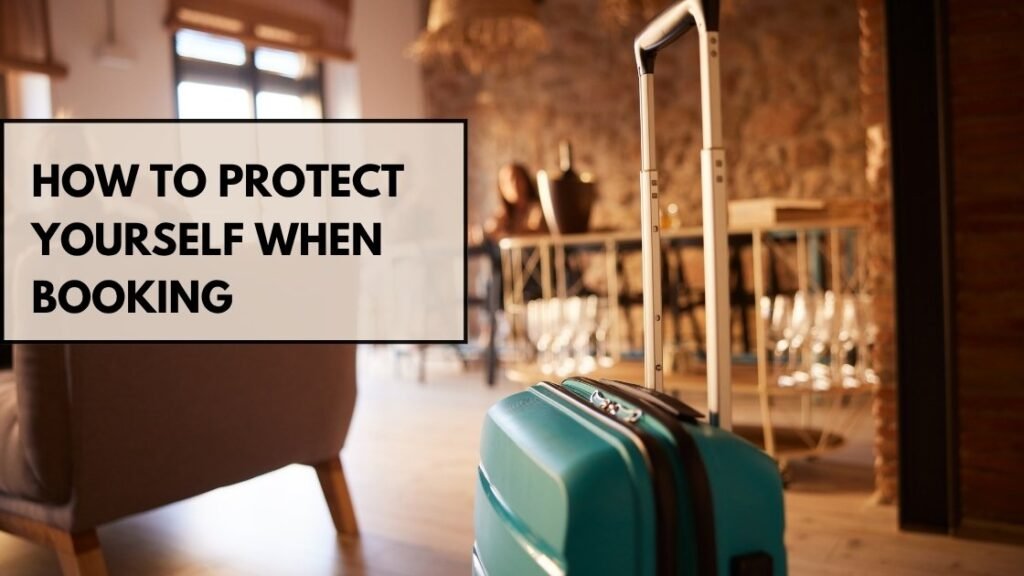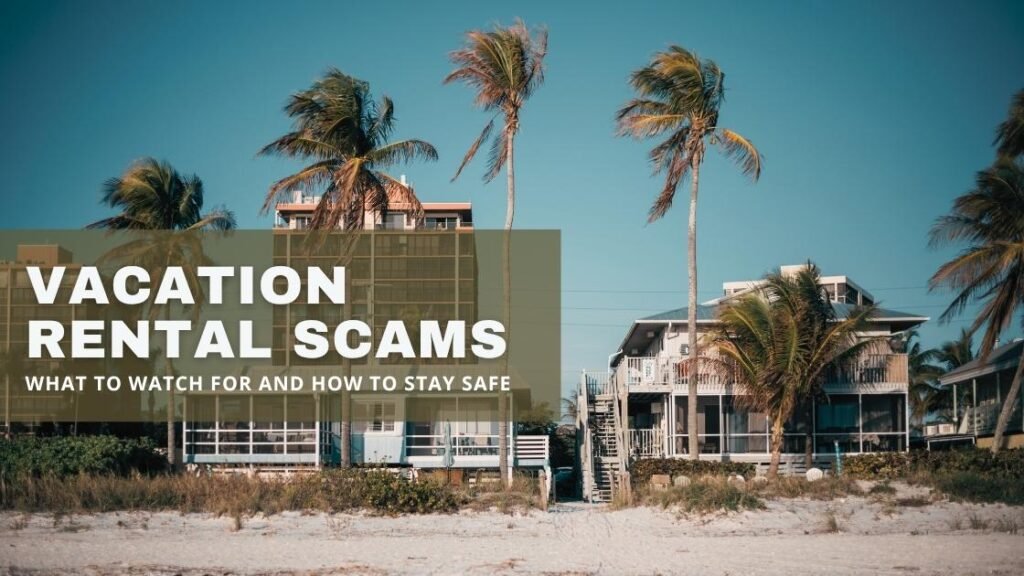In today’s digital world, booking a vacation rental is easier than ever. With just a few clicks, travelers can reserve cozy cabins, beachside bungalows, or downtown apartments across the globe. But alongside this convenience comes a growing threat—vacation rental scams. From fake listings to fraudulent hosts, unsuspecting travelers are losing money and peace of mind to increasingly sophisticated schemes.
As the popularity of vacation rentals continues to surge, so does the creativity of scammers. Whether you’re planning a family getaway or a romantic escape, knowing how to spot red flags and protect yourself is essential.
In this blog, we’ll uncover the most common rental scams, show you how to stay safe, and help ensure your next vacation starts with confidence—not regret.
What is a Vacation Rental Scam?
A vacation rental scam is a fraudulent scheme where a scammer tricks travelers into paying for a rental property that is fake, misrepresented, or doesn’t exist. These scams often involve fake listings, stolen photos, unverified hosts, and requests for payment outside secure booking platforms.
In some cases, scammers impersonate real hosts or create duplicate listings on unofficial websites. Victims may arrive to find the property doesn’t exist, has already been booked, or is completely different from the advertisement.
5 Common Vacation Rental Scams

1) Fake Listings
These scams involve completely fabricated properties or stolen photos from real listings. Scammers post them on legitimate platforms or fake websites, luring travelers with attractive photos and prices. Once payment is made, the listing vanishes—and so does the scammer.
2) Upfront Payment Fraud
A host who insists on receiving payment outside of the booking platform—often through wire transfers, cryptocurrency, or cash apps—is a major red flag. These payments are typically untraceable and non-refundable once sent.
3) Too-Good-To-Be-True Deals
If a luxurious property is offered at an incredibly low price, especially during peak season, be cautious. Scammers often use bargain pricing to draw in victims who are looking for deals.
4) Last-Minute Switches
Some scammers will confirm your reservation, then claim the original property is “unavailable” just before your arrival—offering a lower-quality alternative. By then, you’re too close to your travel date to change plans.
5) Phishing Emails and Fake Booking Sites
Scammers may send convincing emails pretending to be from Airbnb or Vrbo, prompting you to click on fake links and enter sensitive information. Some even create replica websites to fool unsuspecting users.
5 Red Flags to Watch For
While vacation rental scams can be convincing, they often come with subtle warning signs. Recognizing these red flags early can save you from financial loss and ruined travel plans.
1) No Reviews or Only Generic Reviews
Legitimate properties usually have detailed, authentic reviews. If a listing has no reviews—or only vague, overly positive comments—it may be fake or recently created for scam purposes.
2) Vague or Inconsistent Communication
If the host avoids answering specific questions, provides conflicting details, or responds with broken English and scripted messages, be cautious. Legitimate hosts are usually clear, responsive, and informative.
3) Unusual Payment Requests
If you’re asked to pay via wire transfer, cryptocurrency, prepaid gift cards, or any method outside the platform, it’s almost certainly a scam. These payment types are untraceable and irreversible.
4) No Verifiable Host Identity
Check if the host has a verified profile, including an ID, contact information, and previous rental history. A blank or suspicious profile is a major red flag.
5) Low-Quality or Watermarked Photos
Listings with blurry, outdated, or oddly cropped images—or those stolen from other sites with watermarks—could indicate a fraudulent property. Always reverse-search images to check their authenticity.
How to Protect Yourself When Booking a Vacation rental?

1) Use Trusted Platforms
Stick to well-known vacation rental websites like Airbnb, Vrbo, Booking.com, or Expedia. These platforms have built-in security measures, verified listings, and support teams that can help if issues arise.
2) Verify the Listing and Host
- Check the host’s profile: Look for a verified ID, completed bookings, and prompt communication.
- Read the reviews: Pay attention to detailed, recent guest reviews for consistency.
- Search the address: Use Google Maps or reverse image search to confirm the property exists and matches the photos.
3) Use Secure Payment Methods
Never pay outside the official platform. Use credit cards or trusted digital payment systems only through the booking site. This ensures your payment is protected and traceable.
4) Communicate Only on the Platform
Keep all conversations within the booking app or website. Scammers often try to move communication to email, WhatsApp, or text to avoid detection.
5) Read the Fine Print
Before booking, carefully review:
- a) Cancellation policies
- b) House rules and check-in/check-out times
- c) Additional fees (cleaning, service, security deposit)
Knowing the terms helps you avoid surprises and gives you legal ground if something goes wrong.
What to Do If You Suspect a Scam?
Even with careful planning, you might encounter a suspicious listing or host. Acting quickly and decisively can help you avoid losses or recover your money.
1) Stop All Payments Immediately
If something feels off before you’ve paid, pause the transaction. Don’t send any money until you can verify the property and host details.
2) Report to the Booking Platform
Notify the official platform (Airbnb, Vrbo, etc.) right away. Most reputable websites have dedicated teams to investigate fraudulent listings and assist with refunds.
3) Document Everything
Take screenshots of all conversations, booking confirmations, and payment receipts. These will be essential if you need to dispute a charge with your bank or file a report.
4) Contact Your Bank or Credit Card Provider
If you’ve already made a payment and suspect fraud, request a chargeback or dispute the payment as soon as possible. Credit cards often offer fraud protection.
5) Report to Authorities
In serious cases, file a complaint with:
- a) Local authorities in the rental area.
- b) Consumer protection agencies or organizations like the Federal Trade Commission (FTC).
- c) Online fraud reporting centers in your country.
3 Real-Life Case Studies of Vacation Rental Scams
Reading about real incidents can help you understand how scams happen—and how to avoid becoming a victim. Here are a few examples that highlight common red flags and lessons learned.
Case Study 1: The Vanishing Villa
A couple booked a luxurious beachfront villa in Florida through a third-party classifieds site. The price was far below market rate, and the “host” demanded payment via bank transfer. When the couple arrived, the property didn’t exist at the given address. They lost $2,000 and had no legal recourse because the booking wasn’t made through a secure platform.
Lesson: If the deal seems too good to be true, it probably is. Always use trusted booking sites and secure payment methods.
Case Study 2: The Switch-and-Scam
A family booked a well-reviewed apartment on a travel site. Two days before check-in, the host claimed the original unit had a plumbing issue and offered a different property—far from the city center and with poor amenities. The platform declined to refund since the alternative was technically “offered.”
Lesson: Read cancellation and refund policies carefully. Be cautious of sudden changes, and don’t accept alternatives without verification.
Case Study 3: Copycat Listing on a Fake Website
A solo traveler found an apartment online with great photos and reviews—but it turned out the entire listing was copied from Airbnb and reposted on a fraudulent website. After paying $850, the traveler realized the site had disappeared and customer service numbers were fake.
Lesson: Always double-check URLs and make sure you’re on the official site before booking or entering personal information.
How To Avoid Being Impersonated: 5 Tips for Hosts
Vacation rental scams don’t just affect guests—hosts are often targeted too. Scammers may steal your listing details and pose as you to defraud travelers. Here’s how to protect your reputation and your guests.
1) Regularly Monitor Your Listings
Search for your property across the web to check for duplicates or stolen images. If you find suspicious copies, report them immediately to the platform or site owner.
2) Watermark Your Photos
Add discreet but clear watermarks with your name, business logo, or platform ID. This makes it harder for scammers to reuse your images without detection.
3) Use Official Communication Channels
Encourage guests to contact you only through the platform. This builds trust and keeps records in case of a dispute.
4) Verify Your Profile
Complete your host profile with a professional photo, verified ID, and detailed information. A strong, transparent profile adds credibility and reassures guests.
5) Educate Your Guests
Include a short safety note in your welcome messages:
“Always confirm details and payments only through [platform name]. I’ll never ask you to send money outside the app.”
This proactive step helps alert potential victims and keeps your brand trustworthy.
Conclusion
Vacation rentals offer flexibility, comfort, and a more personalized travel experience—but they also come with risks if you’re not cautious. As rental scams become more sophisticated, it’s essential for both guests and hosts to stay alert, informed, and proactive.
By recognizing the warning signs, booking through trusted platforms, using secure payment methods, and verifying listings carefully, you can greatly reduce your chances of being scammed. And if something feels off, it probably is—so trust your instincts.
Your vacation should be about relaxing, not recovering from fraud. With the right precautions, you can confidently explore the world—safely, smartly, and scam-free.




